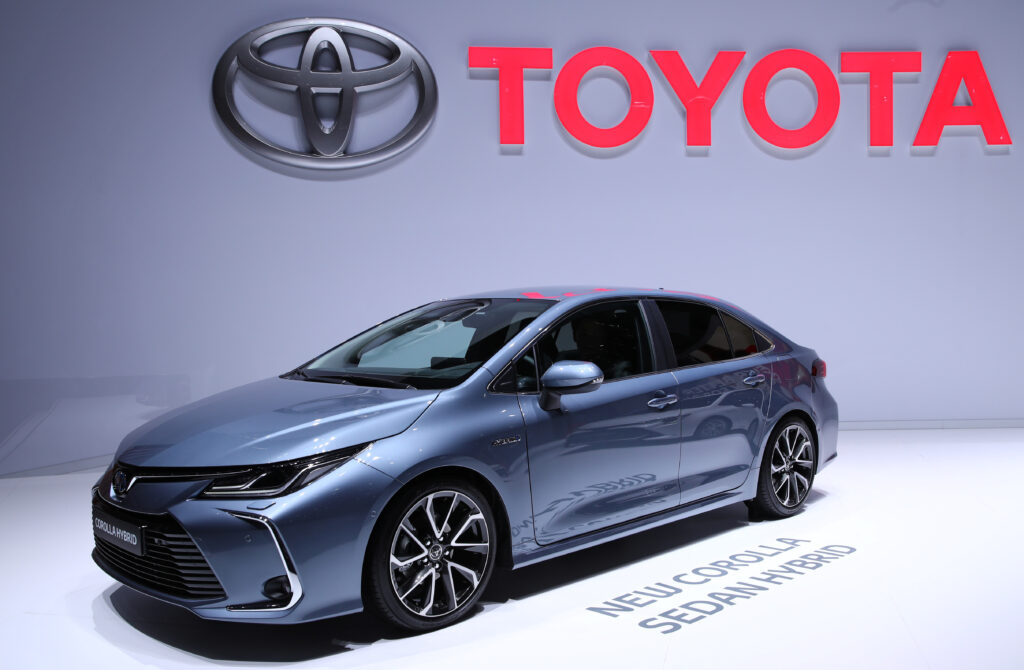
Toyota, though slow in developing electric vehicles, might soon lead in phasing out gasoline-only cars. Nearly 30 years after introducing the Prius, the first gasoline-electric hybrid, Toyota is shifting its focus. According to two company executives, the automaker plans to transition most, and potentially ll, of its Toyota and Lexus models to hybrid-only versions, aiming to eventually eliminate traditional gasoline-powered vehicle.
Evaluations Will Accompany Every Model Redesign, If Not Sooner
Toyota is expected to overhaul the RAV4 for the 2026 model year, with plans to potentially phase out the gasoline-only version in the North American market. Currently, hybrid models make up about half of RAV4 sales. While the decision isn’t final, two insiders suggest that Toyota is leaning towards discontinuing the gasoline-only variant to focus on hybrid and possibly electric options, reflecting evolving market trends.
The automaker has transitioned its popular models, including the Camry, Land Cruiser, and Sienna, to hybrid-only versions starting with the 2025 model year. The Camry, America’s best-selling sedan, will no longer be available as a gasoline-only option. Additionally, many of these hybrid models may also be offered as plug-in hybrids with larger batteries, according to unnamed sources.
Toyota’s unreported strategy aims to transition nearly its entire North American lineup to hybrid-only vehicles, marking a significant shift towards eco-friendly transportation solutions.
NEW EMISSIONS RULES
Toyota’s hybrid strategy is designed to strengthen its leadership in the market as demand for electric vehicles (EVs) slows due to high costs and charging challenges. Toyota’s hybrids, which don’t require charging, effortlessly transition between gasoline and electric power or utilize both depending on driving conditions. Additionally, Toyota’s plug-in hybrids can be charged and offer around 40 miles (64 km) of battery-powered driving, similar to EVs, before the gasoline engine takes over, providing flexibility and convenience to consumers.
Toyota and Lexus offer 31 models in North America, excluding two electric vehicles (EVs) and a fuel-cell car. Of these, eight models are hybrid-only, while another eight are available exclusively with gasoline engines. Toyota’s hybrid-focused strategy provides the automaker with significant advantages in meeting the increasingly stringent carbon-emissions regulations in the U.S., according to both Toyota executives and industry experts. This approach helps Toyota stand out in the competitive automotive market while promoting sustainability.
Toyota’s strong hybrid sales may save the company billions in regulatory fines and costs as the U.S. tightens pollution limits, announced in March. This success buys Toyota time to further develop electric or other zero-emission vehicles, allowing them to meet stricter environmental regulations without immediate reliance on full EV production.
The New Emissions Standards Take Effect from the 2027 Model Year and Continue Through 2032
Toyota hasn’t set a deadline for an all-hybrid lineup, with pickups and economy cars possibly taking longer due to price sensitivity. The company aims to have about 30% of its global fleet as EVs by 2030, focusing on fully electric versions of top-selling models, according to sources familiar with Toyota’s plans.
In May, the automaker introduced a prototype small combustion engine, which could potentially operate on biofuels or low-carbon synthetic gasoline. This engine is designed to be compatible with hybrid drivetrains, indicating a focus on more sustainable and low-emission vehicle technologies.
According to a source familiar with Toyota’s product planning, the company aims to develop hybrids differently by using a new EV platform as the foundation and adding small engines for improved efficiency. This approach will allow Toyota to create more efficient hybrid options. The first hybrid using this platform is expected to be a Corolla plug-in hybrid, launching in China in 2026 and in the U.S. in 2027.
TIPPING POINT
Toyota’s hybrid success is due to decades of investment in improving gasoline-electric powertrains. Now, hybrid technology adds under $2,000 to the retail price of most models, making the switch to hybrid-only a practical choice for both Toyota and its customers.
Advancements in hybrid technology have addressed key consumer concerns, boosting their market share from less than 3% in 2019 to 11.3% as of 2024. This surge in adoption is noted by Cox Automotive, reflecting a significant shift in consumer preference towards hybrid vehicles.
Toyota’s hybrid sales have surged dramatically, rising from 9% of total sales in 2018 to 37% by June 2024. This growth has been instrumental in driving Toyota’s profit and stock price to record highs. The company anticipates this trend will continue, with hybrid sales projected to surpass 50% of total volume next year, reflecting a strategic shift towards an all-hybrid lineup.
Through June 30, Toyota’s U.S. hybrid sales surged 66% from the previous year to 438,845 vehicles, while EV sales reached only 15,107 units. Cox Automotive, based in Atlanta, forecasts that demand for electric vehicles is expected to grow modestly over the next few years. This contrast highlights the ongoing strong preference for hybrid vehicles compared to fully electric models.
Cox senior analyst Stephanie Valdez Streaty stated that while EV growth will persist, it won’t match the rapid pace of recent years. She noted that regular gas-electric hybrids and plug-in hybrids will continue to capture a significant share of the market because they are more familiar and convenient, alleviating concerns about range anxiety. This ongoing preference for hybrids contrasts with the slower growth expected for EVs.